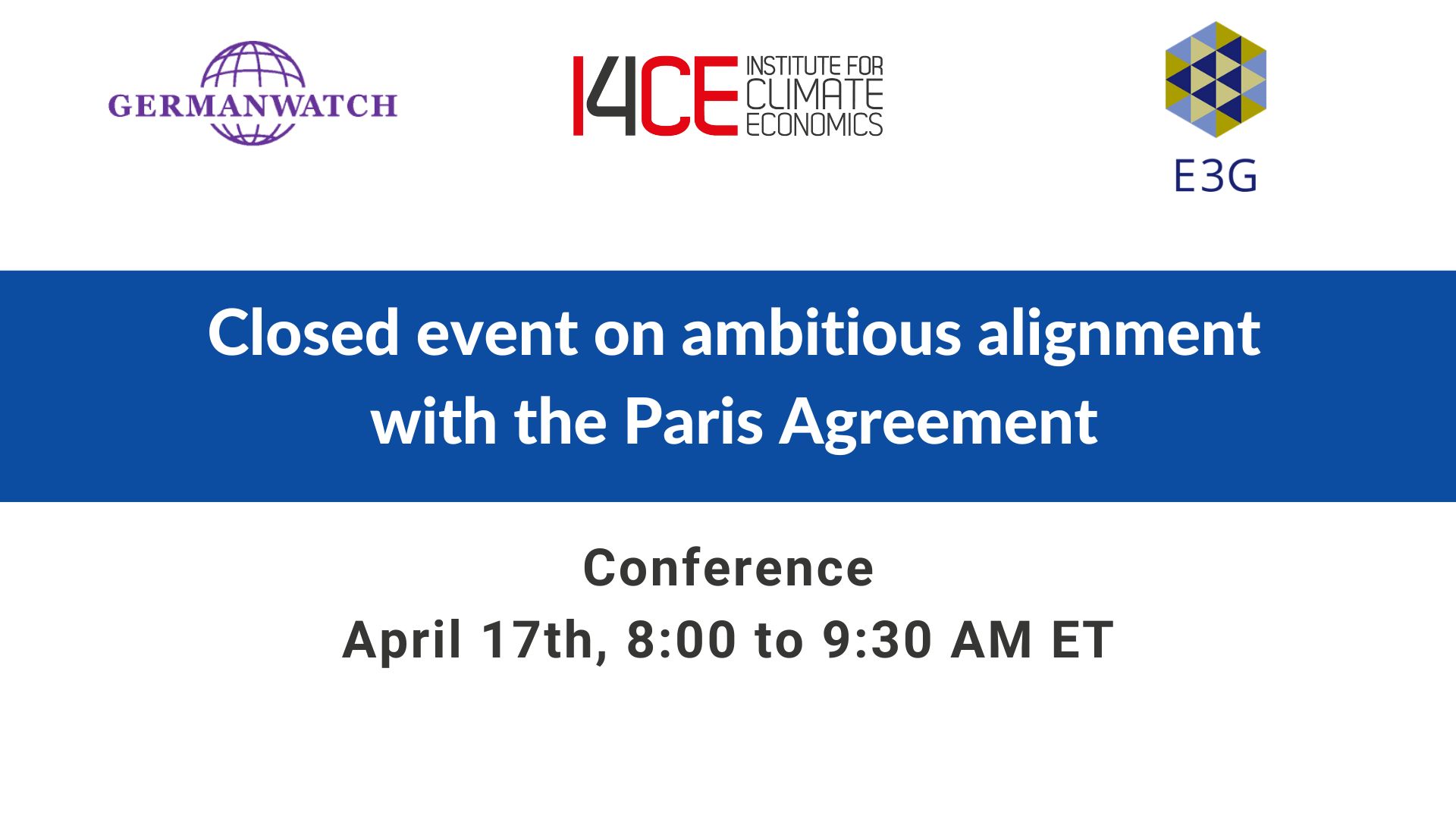Closed event on ambitious alignment with the Paris Agreement
Conferences - By : Luis ZAMARIOLI SANTOS / Claire ESCHALIERSide-event – Spring meetings

Context
The window of opportunity to remain below 1.5°C is rapidly closing. Public development banks (PDBs) need not only to increase the volume of climate finance, but also maximize the climate transformation achieved through their operations. Paris alignment commitments are crucial in this regard, but implementation requires continuous improvement and adjustments to adapt to an evolving context and real-world needs. The session will discuss best practices and shortcomings of existing approaches, drawing key directions for further progress towards a financial international architecture that sufficiently addresses our mounting climate crisis.
Objective of the side-event
This side-event seeked to bring in the debate country representatives and DFIs to exchange on how they are advancing on the climate and development agenda, what are their specific objectives related to the transition to low-carbon resilient economies and how to define impact?
Organizers
I4CE, E3G and Germanwatch
Date and time: April 17th, 8:00-9:30 AM ET
Format:
For invited guests only – Chatham House Rules
Presentation of public finance commitment tracker, Climate Policy Initiative; Presentation of the Position Paper on Ambitious Alignment of PDBs with the Paris Agreement, I4CE; Insights from the Public Banks Climate Tracker Matrix, E3G; Review of Multilateral Development Banks’ Paris alignment methodologies, Germanwatch. Nancy Vandycke, Senior Climate Advisor, World Bank; Graham Watkins, Chief of Climate Division, Inter-American Development Bank; Boitumelo Mosako, Chief Executive Officer, Development Bank of Southern Africa; Noelle O’Brien, Director of Climate Change, Asian Development Bank; Anthony Nyong, Director Climate Change and Green Growth, African Development Bank (tbc). Provisional agenda:
Welcome remarks: PDBs’ alignment journey
Setting the scene:
Directed discussion, moderated by David Ryfisch, Head of Division, Germanwatch:
Open discussion, with all the events’ participants
Closing remarks